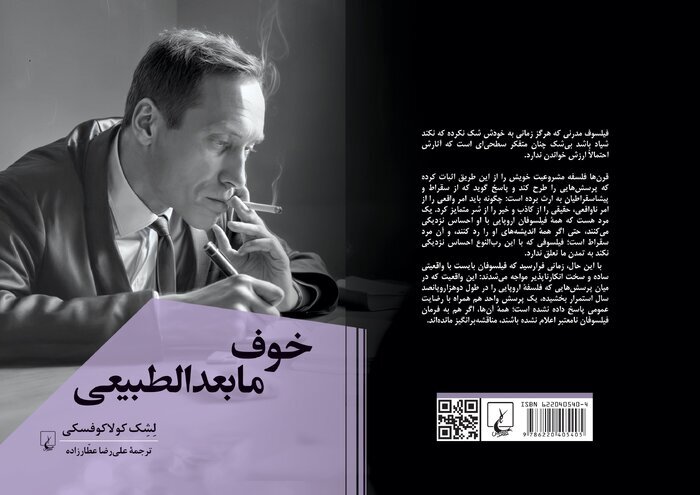Tehran – A Persian translation of the book “Metaphysical Horror,” written by the famous Polish philosopher and historian of ideas, was released in the Iranian book market.
Alireza Attarzadeh translated the book, and Qoqnoos Publishing Group published it on 175 pages, Mehr reported.
For more than a century, philosophers have argued that philosophy is impossible, useless, or both. The basic concepts go back to the time of Socrates, but there are still intense disagreements about the nature of truth, reality, knowledge, goodness, and so on.
This may make little practical difference in our lives, but it leaves us with a sense of fundamental uncertainty. This is described by Kolakovsky as “metaphysical horror.”
“Fear is nothing if there really is nothing except absolute, there is nothing. If there really is no other than myself, then I am nothing,” the author said. The aim of this book is to find a way out of this dead end.
In a rigorous analysis that serves as an introduction to almost all Western philosophy, Kolakowski heads out to these dilemmas through the examination of several prominent philosophers, including Descartes, Spinoza, Husserl, and many neoplatonists. He discovers that philosophy may not provide a definitive answer to basic questions, but the quest itself may change our lives. It may undermine most of our certainty, but it still leaves room for our spiritual longings and religious beliefs.
The final sentence of the book captures the hopes of surviving a pointless fear when Kolakowski asks. Of course, the answer is clear. Now it’s up to the reader to take on the challenge of his argument.
Leszek Kowakowski (1927-2009) is best known for his critical analysis of Marxist thinking, particularly his acclaimed three-volume history, “The Major Currents of Marxism.” In subsequent works, Kolakovsky became increasingly focused on religious questions. In Jefferson’s lecture in 1986, he argued that he “learning history not to know how to behave or how to succeed, but to know who we are.”
In Poland, Kowakowski is not only respected as a philosopher and historian of ideas, but also as an icon for opposition to communism. Adam Michnik calls Kołakowski “one of the most prominent creators of contemporary Polish culture.”
SS/

